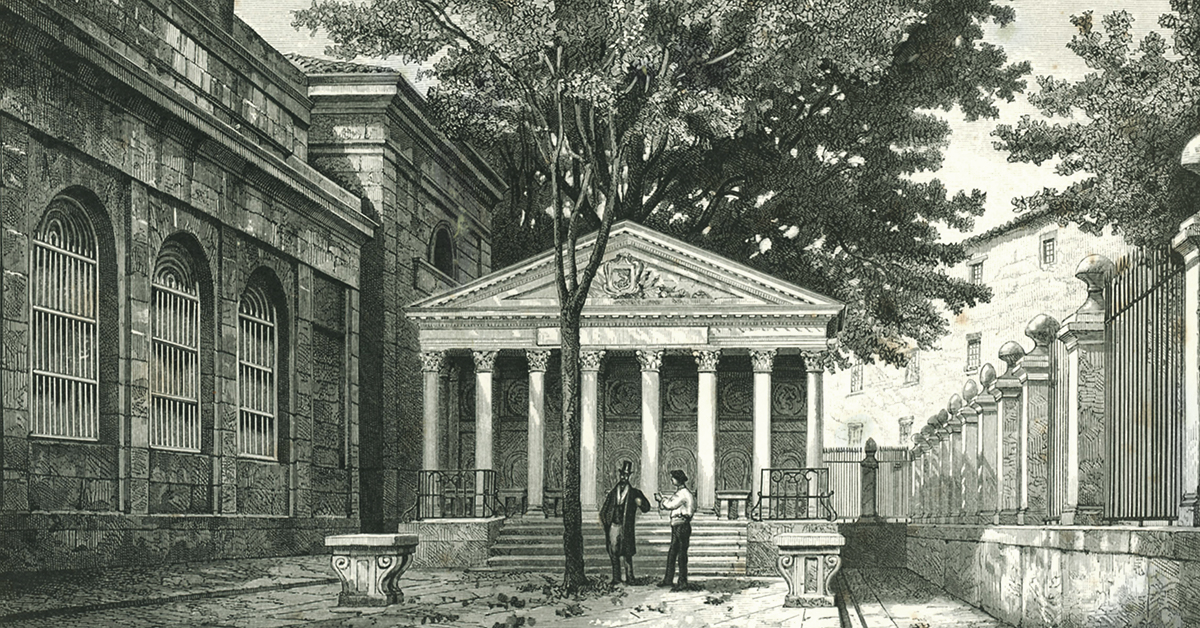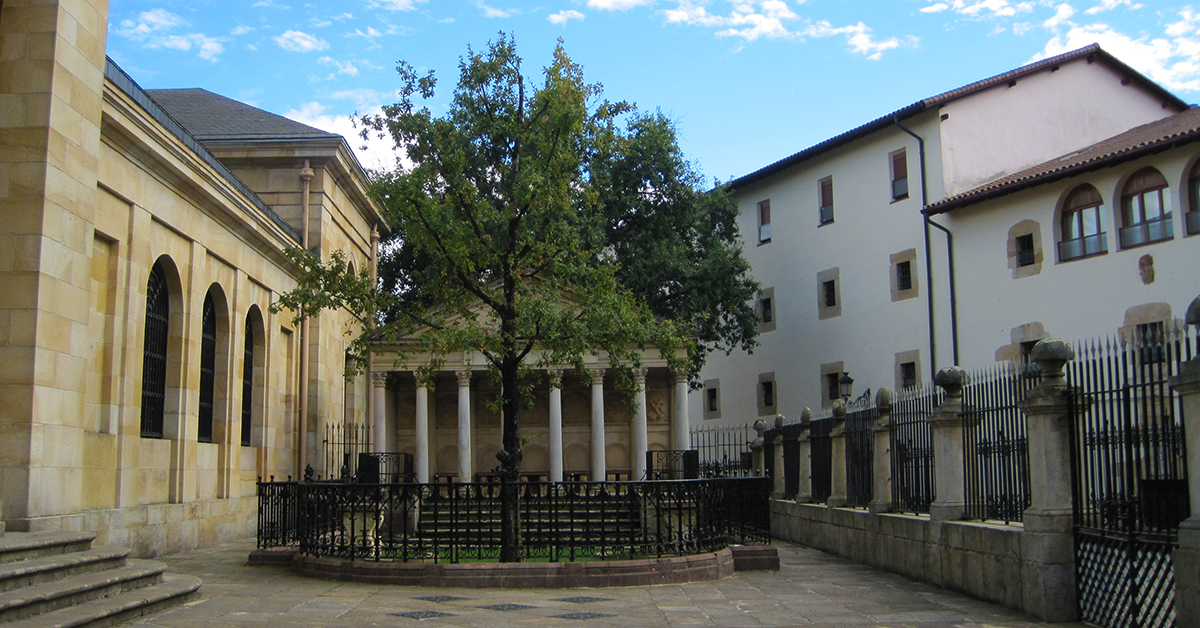Basque ethnography at a glance

Tree of Gernika and adjacent church. El oasis. Viaje al país de los fueros [The oasis. Journey to the land of chartered laws], by Juan Mañé y Flaquer. Barcelona, 1880. Euskal Biblioteka. Labayru Fundazioa.
In many parts of the world, particularly in Europe, certain trees have been silent witnesses to a great deal of agreements reached at neighbourhood meetings. Next to them stood usually a hermitage or an aedicule and a stone table, or, as in the case of Gernika, a tribune where swearings-in took place. As Caro Baroja points out, trees, and singularly oak trees, have a profound meaning in collective, political and legal life.
There are numerous examples of such trees in the Basque Country, the Tree of Gernika, which is an oak tree, so characteristic of the country, being singled out among others for having survived over a very long time and still staying alive, both the tree and its tradition. The same goes for the charters which it symbolizes, for the determination with which the Basques have defended them.
The General Assemblies of Bizkaia —we would currently define them as the Parliament of Bizkaia— used to be held under its shade, and should it rain, shelter would be sought at the nearby hermitage, which eventually became the building it is today. Assembly meetings dealt with the matters affecting the Lordship of Bizkaia, and laws governing the territory were drafted and developed. Established charters would then be ratified by the kings, swearing allegiance to them.

Tree of Gernika and adjacent church, 2013. Segundo Oar-Arteta. Labayru Fundazioa Photographic Archive.
The Assembly House and the Tree are located in the so-called Gernikazarra, in lands belonging to the parish council of Lumo, which subsequently gave its named to the chartered city. The old trunk (there were previous trees), which stood from 1742 to 1892, is preserved in a shrine; the current oak was planted in 2015. The neoclassical style building was built between 1826 and 1836, and the ancient church therein, dedicated to Saint Mary, was renamed Old St Mary’s when the new temple of the city, also devoted to the Virgin, was built in the mid-15th century.
When General Assembly was announced on the beacons, as legend dictates, the various parishes sent their representatives. Assembly participants were customarily land owners with renowned names, often belonging to illustrious families of Bizkaia. Chartered laws were abolished in 1876, and although General Assemblies were reinstated in 1979, many of their competencies were lost over time. Let us just remember, by way of example, that once upon a time natives of Bizkaia brought to trial would be previously summoned “beneath the Tree of Gernika”.
The plenary sessions of the General Assemblies of Bizkaia are held at the Assembly House of Gernika to this day, and according to tradition, the lehendakari of the Basque Country and the deputy general of Bizkaia take office before the Tree. The Tree has become a symbol of all Basques, Iparragirre’s song Gernikako Arbola [The Tree of Gernika] having immortalized it.
Segundo Oar-Arteta – Labayru Fundazioa
Translated by Jaione Bilbao – Ethnography Department – Labayru Fundazioa

